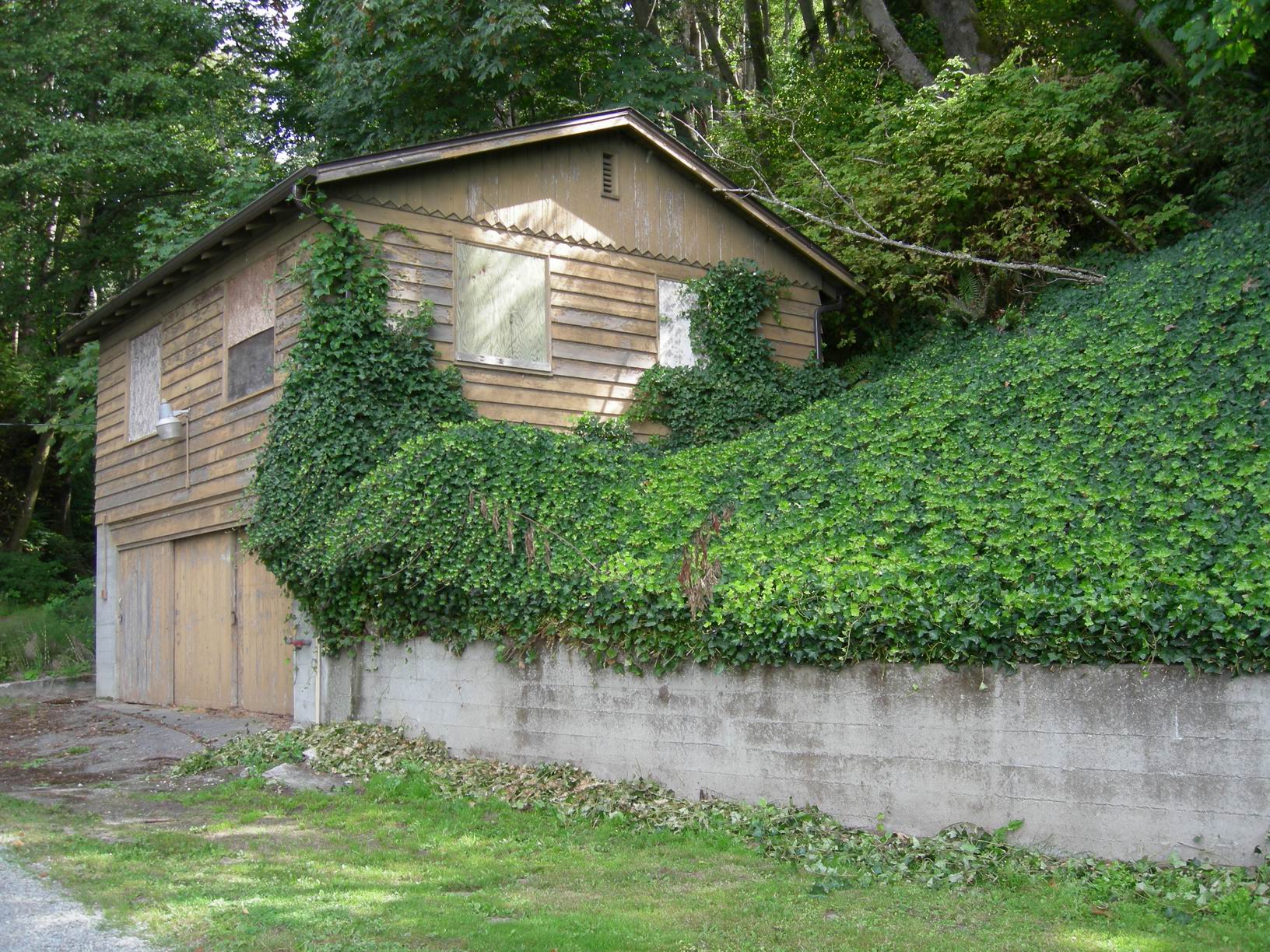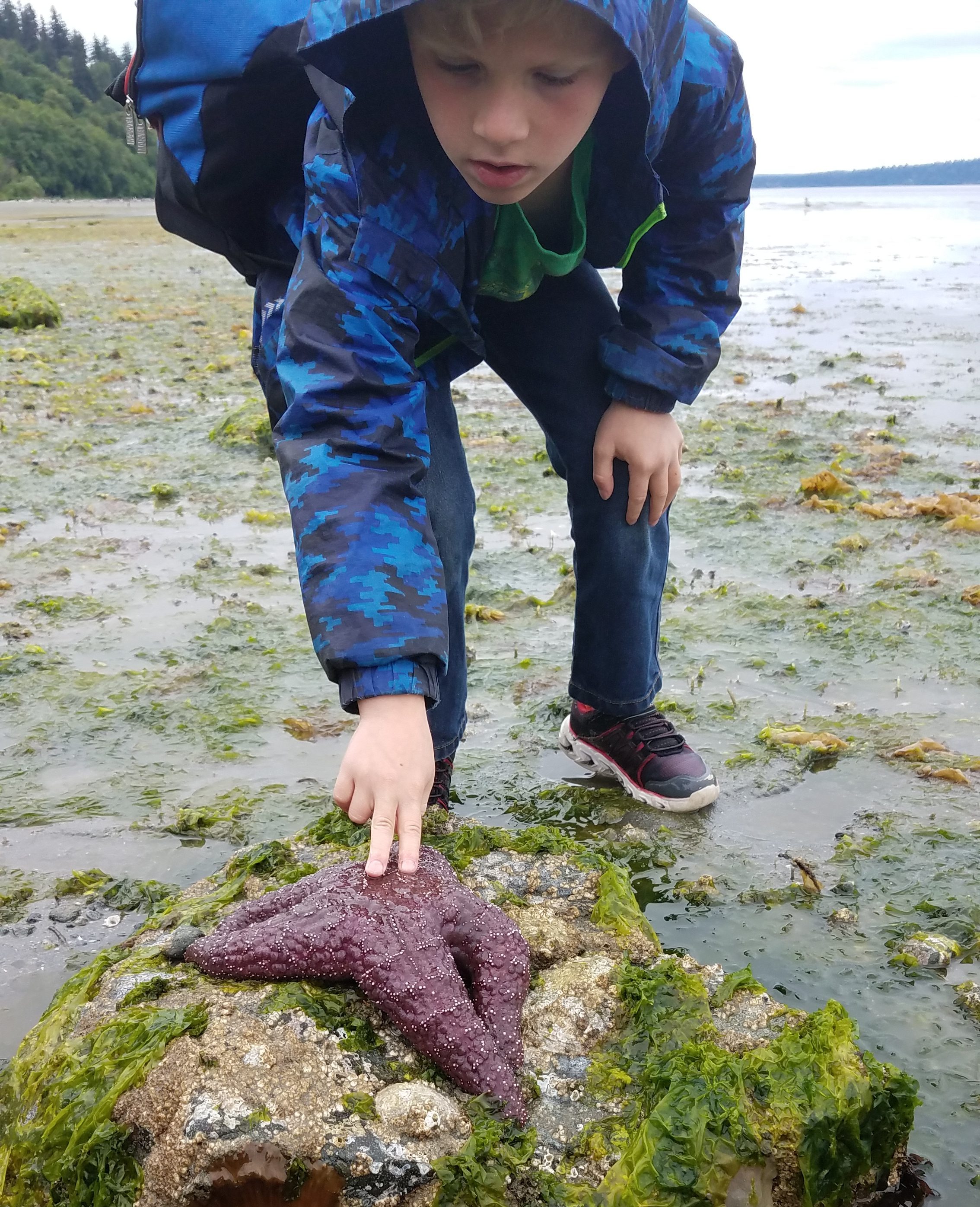The Environmental Science Center operates from the traditional and stolen homelands of Coast Salish Peoples, specifically the dxʷdəwʔabš (“People of the Inside” – Duwamish), suq̀ʷabš (“People of Clear Salt Water” – Suquamish) and Muckleshoot Tribe. We recognize and honor the land itself and all tribal members of the past, present and future, including Indigenous teachers and scientists. We are grateful for the ways Indigenous Peoples continue to be caretakers of this land and all that live here, and we acknowledge how their stewardship was disrupted by the theft and colonization of their land. We strive to build reciprocal and respectful relationships with the land and its Peoples, and to be in partnership and solidarity with local Tribes and Indigenous communities.
You’ll hear land acknowledgements at the beginning of ESC programs that differ depending on the location, age group and person delivering them. Find out more here.
ESC is committed to becoming an inclusive, anti-racist, multicultural organization engaging our community in environmental education and creating safe and affirming outdoor programs for everyone. We are in the process of developing our racial grievance policy for staff, volunteers, and program participants which will be shared here shortly.


Purpose & Mission
The Environmental Science Center promotes environmental stewardship and academic achievement through science-based education.
Overview: Who, Why and What
The Environmental Science Center (ESC) is a nonprofit organization offering experiential environmental education programs for all ages at local beaches, streams, forested areas, and school gardens throughout south King County. Our goals are to inspire and foster environmental stewardship actions for all program participants, and to offer knowledge and resources for communities to deepen their relationship with their local environment. ESC was founded in 2000 after a group of educators wanted more students to experience environmental education outdoors. The organization now supports environmental stewardship for thousands of people through collaborations with a growing number of school districts, community-based organizations, municipalities, and individuals.
ESC recognizes that many communities in south King County – particularly Black, Indigenous, people of color, immigrant, refugee, and low-income communities – have been systematically excluded from safe, positive outdoor experiences, and we are striving to change that. We aim to remove some of the barriers to these experiences by providing transportation and free or low-cost programs, translation and interpretation, and by working to create a safe and affirming space within our programs and in the broader community.
It is important to form values early on that foster conservation. This guided our initial focus on programming with children and families. Early learning programs have included both indoor and outdoor seasonal experiences, and school programs typically consist of one hour of classroom instruction followed by a two- or three-hour field study at nearby green spaces. During inquiry-based field portions, students learn to analyze what they are seeing, develop a deeper understanding of ecological systems, see how environmental quality is impacted by human decisions, and reach informed conclusions about how to make responsible choices. We also provide after- school programs, summer programs, adult and teacher workshops, high school internships, teen leadership opportunities, and restoration projects.
As our community has grown, so have our public programs and events, but environmental stewardship remains at their core. ESC engages individuals and families through a wide variety of outdoor programs, ranging from guided nature walks, environmental talks, nature festivals and toddler programs. All ages participate in worldwide research projects in their neighborhoods through our annual community science projects that are made easily accessible. Curiosity and care go hand-in-hand in what, and why, we do what we do. We are eager to see where the community will lead us next.
Vision
Our community is inspired and contributes to a sustainable future through quality environmental science education.
Leading to:
- Increased enjoyment and understanding of environmental science
- Sense of community responsibility for healthy choices that affect the Puget Sound ecosystem
- Improved quality of life and career opportunities through STEM (science, technology, engineering, math)
- Greater representation of diverse communities in STEM occupational fields
Core Values
As long as our interactions align with our core values, we’ll know we CARED.
Community Engagement– Everyone can have positive impacts on their community.
Academic Achievement– Education improves quality of life and career opportunities.
Respect for the Environment– Our environment benefits from choices rooted in respect for the natural world.
Equity and Access– Everyone should have access to quality science education and exploration.
Discovery and Exploration– Mindful hands-on learning opportunities produce intimate, impactful experiences.


Leave a Reply
You must be logged in to post a comment.